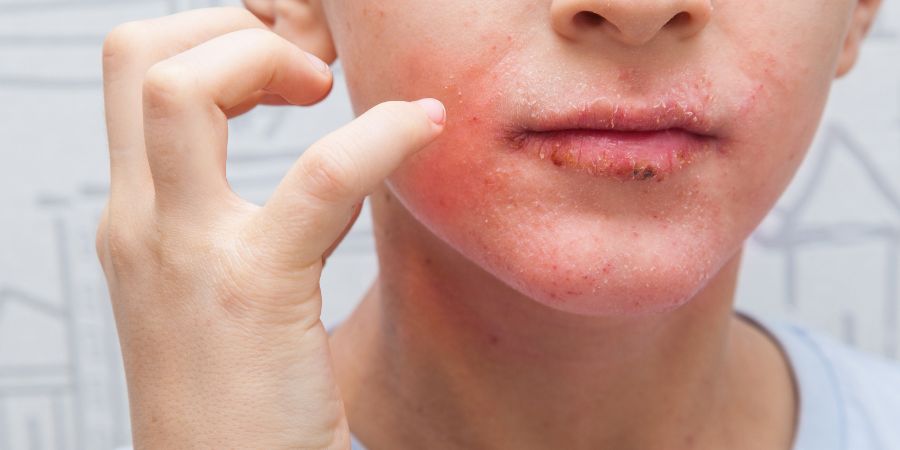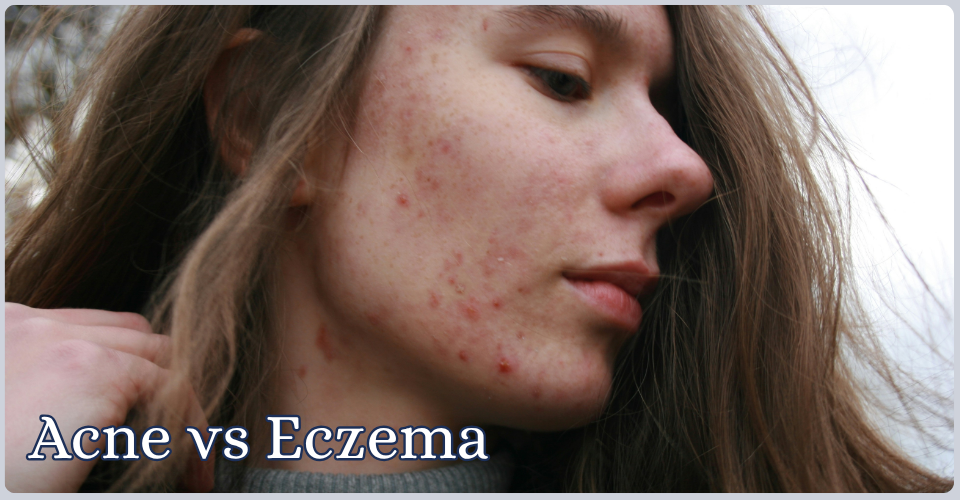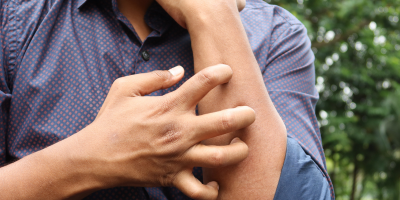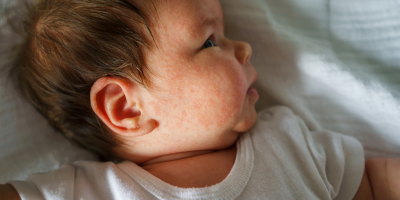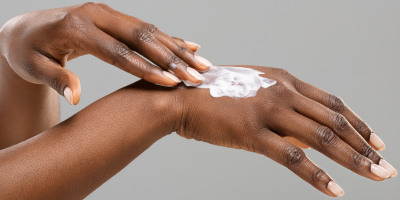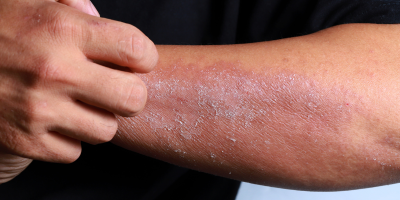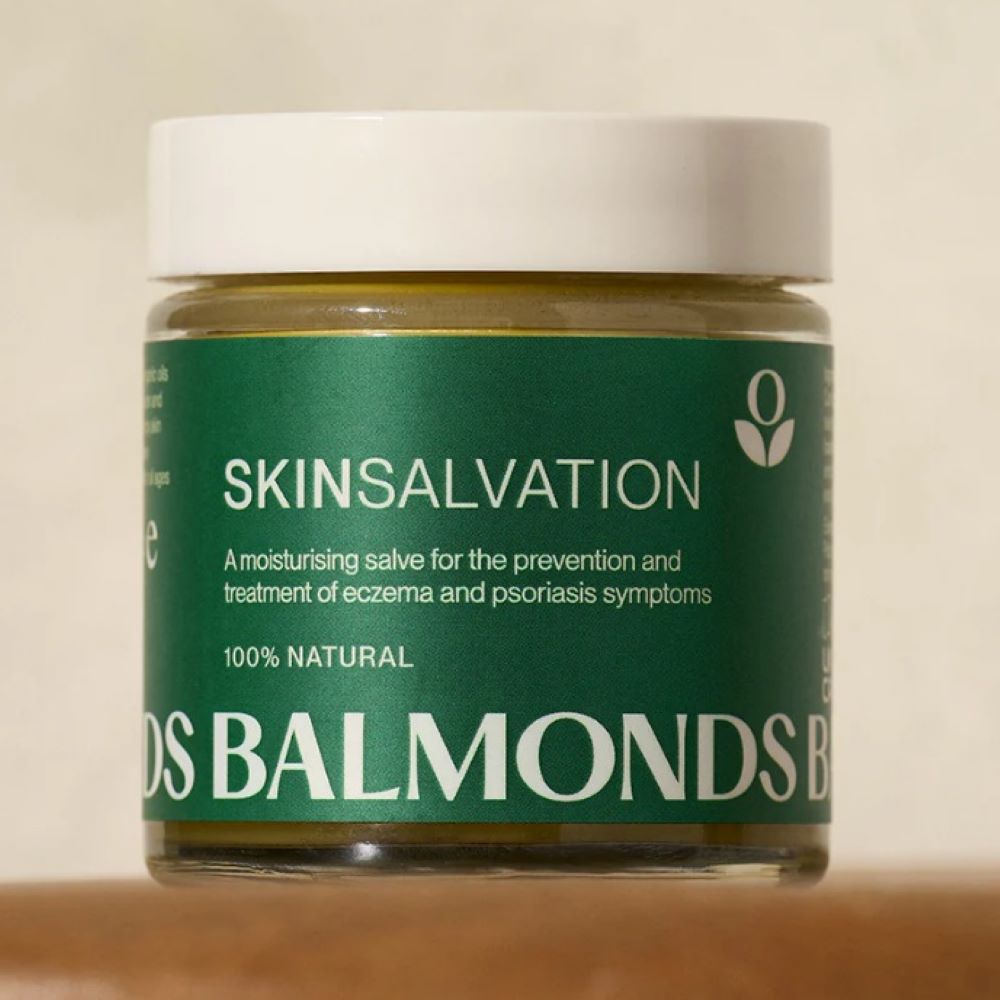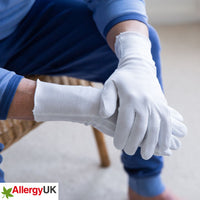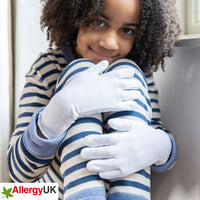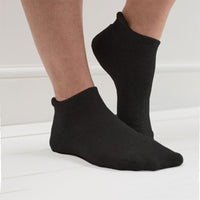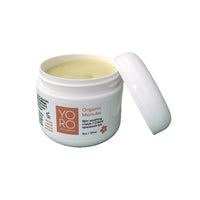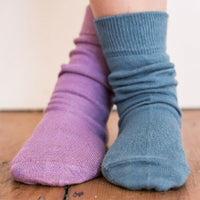By Amy Rennison
Hi fellow eczema folk! Grab your coffee, because we need to talk about something that’s a bit awkward—lip and mouth eczema. Yes, that annoying, itchy, and sometimes painful condition that makes your lips and face feel like they're on fire. In this article, we’ll talk about what causes this bothersome problem, how to treat it, and how it affects our mental health and relationships. Let's get comfy and dive in.
Can You Get Eczema on Your Lips and Mouth?
Yes, you absolutely can get eczema on your lips and mouth, known as eczematous cheilitis. Eczema on the lips or around the mouth can cause redness, dryness, and painful cracking that makes eating and speaking uncomfortable. Because eczema around the lips is easily irritated by food, saliva, or skincare products, it often requires careful management and targeted treatment.
What Causes Eczema Around the Mouth?
This condition can be triggered by a variety of things. Sometimes it’s an allergic reaction to something you’ve put on your lips like a new lipstick, balm, or even toothpaste. Other times, it’s because of irritants like the cold, dry weather, or just the bad habit of licking your lips and the surrounding area too much (we’ve all been there) or touching or rubbing them with your fingers.
People with atopic dermatitis are more prone to this. So if you’ve got the kind of eczema that makes your skin super sensitive to things like pollen, pet dander, or even stress - and if you get flare ups on other parts of your body, chances are your lips might get in on the action too.
Types of Lip and Mouth Eczema
There are various types of lip eczema, each with its own set of causes:
- Irritant Contact Cheilitis: This occurs due to external irritation, such as lip licking, cosmetics, and other environmental factors.
- Allergic Contact Cheilitis: This is an allergic reaction to lip products, dental materials, toothpaste, or medication.
- Atopic Cheilitis: Those with a history of atopic dermatitis, or eczema, can also develop atopic cheilitis.
Symptoms of Lip and Mouth Eczema
Before we talk about symptoms, it’s important to know the difference between lip eczema and cold sores. Cold sore symptoms can include painful red blisters that are filled with fluid or sores, fever, swollen glands, and tiredness. If you suspect that you have a cold sore, you should see a doctor immediately as Eczema herpeticum is serious viral skin infection caused by herpes simplex and can require hospitalisation if not treated quickly.
The symptoms of lip eczema can occur on one or both of the lips. They can also affect the skin inside the mouth and that surrounding it. You might notice:
- A rash on or around the lips
- Dryness or flakiness
- Split, cracked or scaly skin
- Itching
- Burning
- Pain
- Inflammation
It’s not the same as just having dry lips. People with lip eczema may have severely chapped, inflamed, and scaly lips – and it can affect the immediate area around your lips in a similar way making it all very chapped and red so you can’t see where your lips stop and your skin starts.
Is It Mouth and Lip Eczema or a Cold Sore?
Unlike cold sores, which are caused by the herpes simplex virus, eczema around the mouth and lips is not contagious. If you’re dealing with persistent dryness, itching or scaling rather than tingling blisters, it’s more likely eczema that’s on your lips than a cold sore.
Finding Relief: Lip Eczema Treatments That Work
Whilst lip eczema cannot be cured, its symptoms can be managed with treatment. Here, we talk about solutions to lip and mouth eczema including how to identify and avoid common triggers and which balms and ointments can soothe the problem.
Managing and Preventing Lip Eczema
The key to managing lip eczema is a mix of avoiding triggers and using the right treatments. First off, identify what’s setting off your eczema. If it’s a specific product, ditch it. If it’s the weather, try to protect your lips with a good, hypoallergenic balm (we love the Balmonds Skin Salvation Balm,- it can be used anywhere on the face or body or just plain Vaseline is a good option). Think of this as giving your lips a nice, cosy sweater to wear - but it’s crucial to wash your hands first if you’re using your finger to put lip balm on so you don’t transfer any allergens or irritants from them to your lips or skin. And, although this can be hard, really try to avoid licking and touching your lips or the skin around your mouth, however dry it feels.
Prescriptions and Home Remedies for Lip Eczema
Topical corticosteroids or tacrolimus ointments (like Protopic) may be prescribed to bring down the inflammation although limited use on the face is usually recommended, especially for kids. These are like little firefighters for your skin. But remember, they’re not for long-term use because they can damage the skin if overused. For daily care, moisturise, moisturise, moisturise! Basic Vaseline (purified petroleum jelly) is a great go-to, and if you’re into natural remedies, oils like coconut, jojoba, or sunflower are fantastic (just be sure you don't have any allergies to some of these before trying them out). And let's not forget aloe vera—it’s not just for sunburns!.
The Emotional Rollercoaster
Living with lip eczema isn’t just about dealing with the physical symptoms. It can be a real blow to your self-esteem, especially when your lips are the first thing people see. The constant worry about flare-ups can make social situations stressful. You might find yourself avoiding close interactions or feeling anxious about kissing, which can really impact your romantic relationships.
It’s important to address these feelings. Talk to someone about what you’re going through and don’t be afraid to seek help from a therapist if you’re feeling overwhelmed. Mental health is just as important as physical health, after all.
Keep your lips protected and moisturised, avoid known triggers, and stay on top of your treatment plan.
Remember, communication is key. Let your loved ones know what you’re dealing with. Most people are understanding and just want to know how they can help. Plus, being open about your condition can relieve some of the stress and anxiety that comes with it.
So, there you have it. Lip eczema can be a real pain, but with the right care and a bit of support, it doesn’t have to rule your life. Here’s to healthy, happy lips!
Browse Eczema Clothing’s Range of Skincare
With 40+ years of experience in the industry, Eczema Clothing offer a range of solutions to eczema. Our curated selection is designed to soothe sensitive skin, making it easier to manage flare-ups like eczema around the lips or mouth. From gentle balms to nourishing creams, each product supports daily relief and long-term skin health.
Try our Eczema Skincare today.

